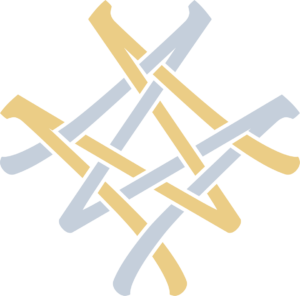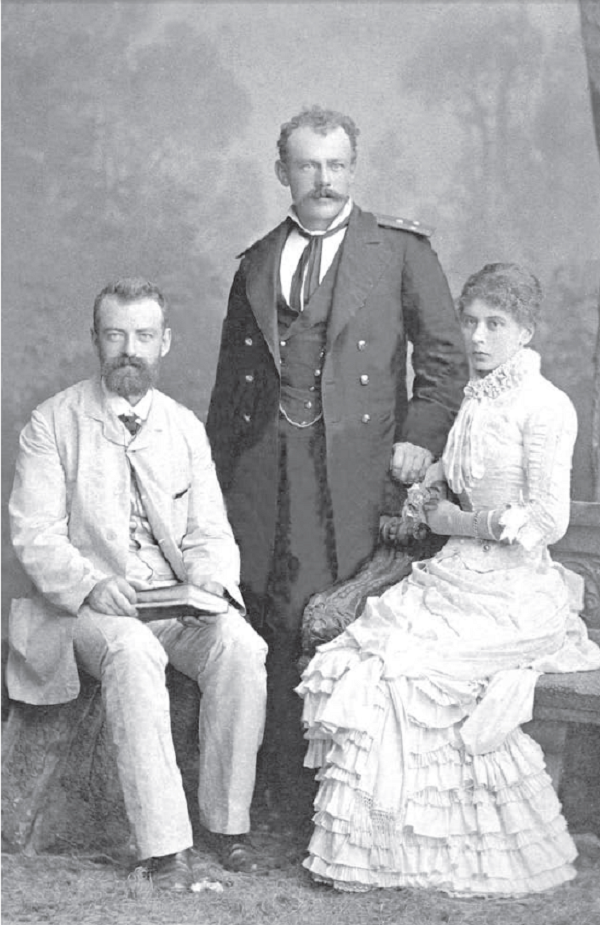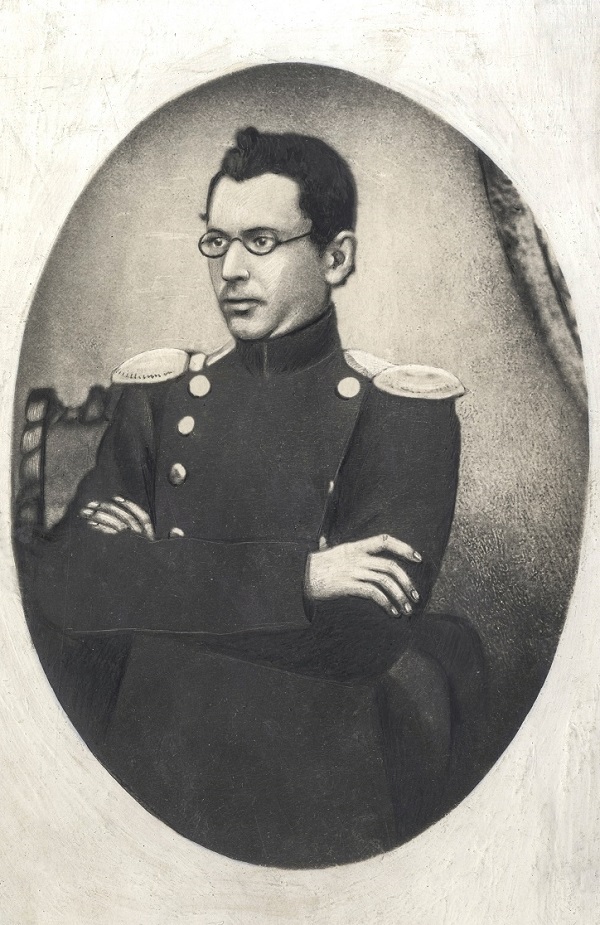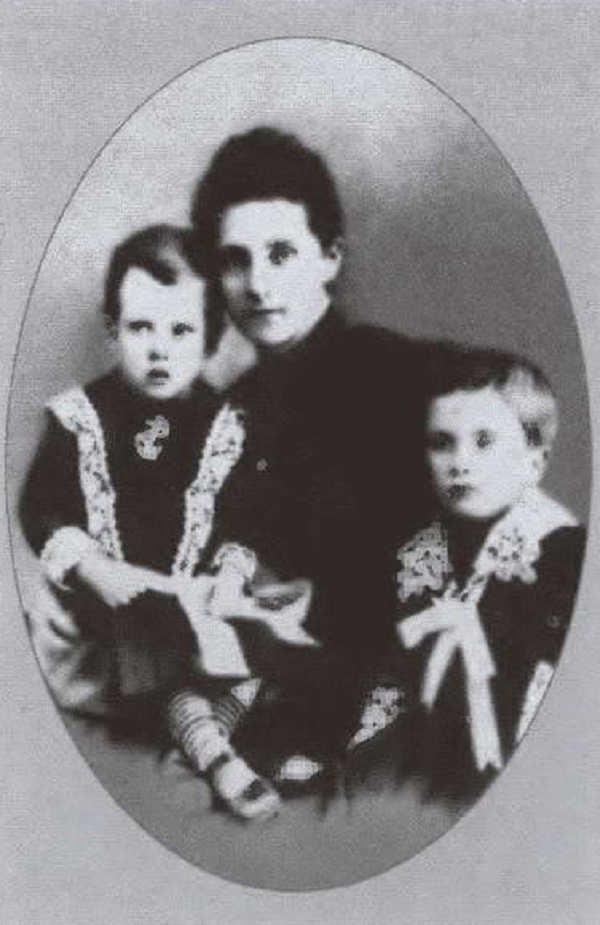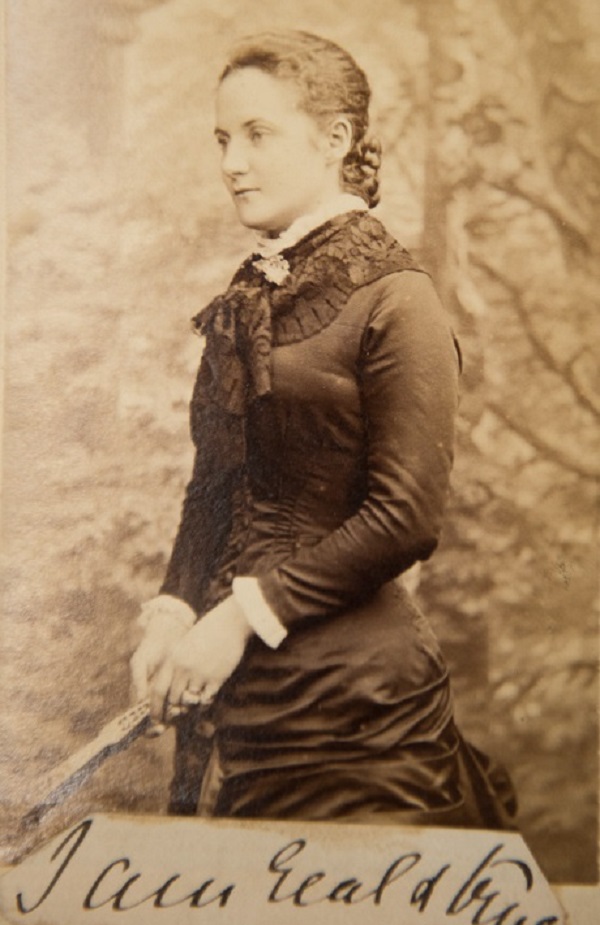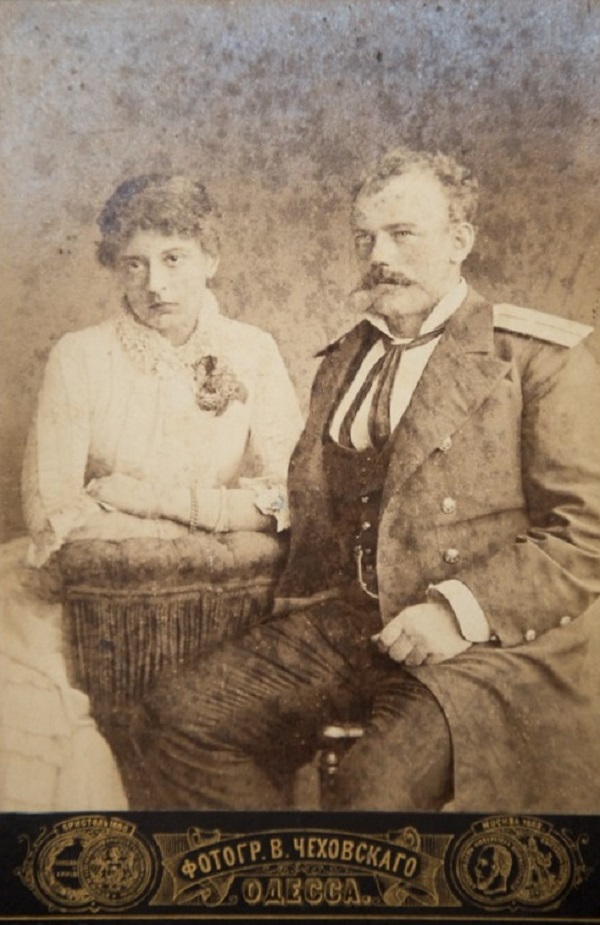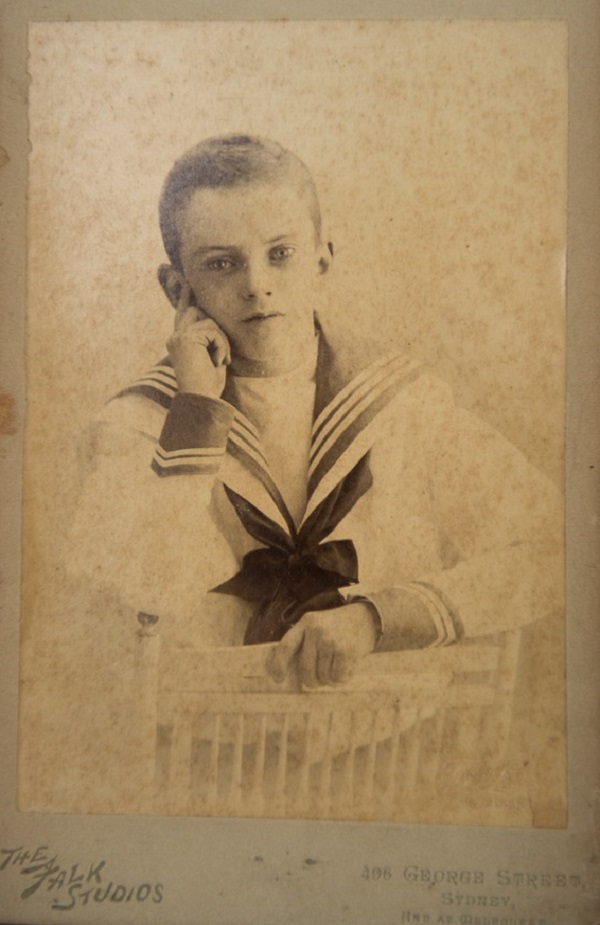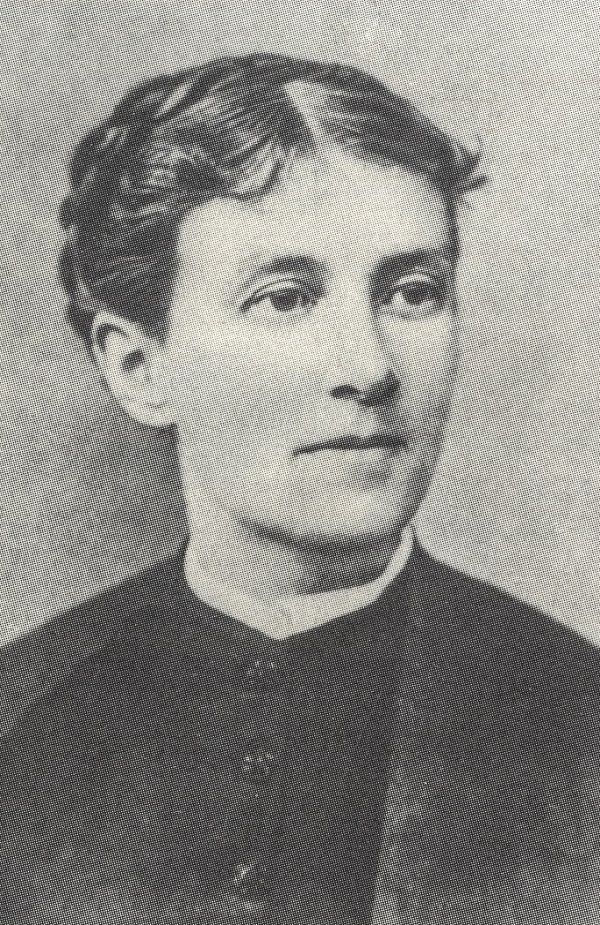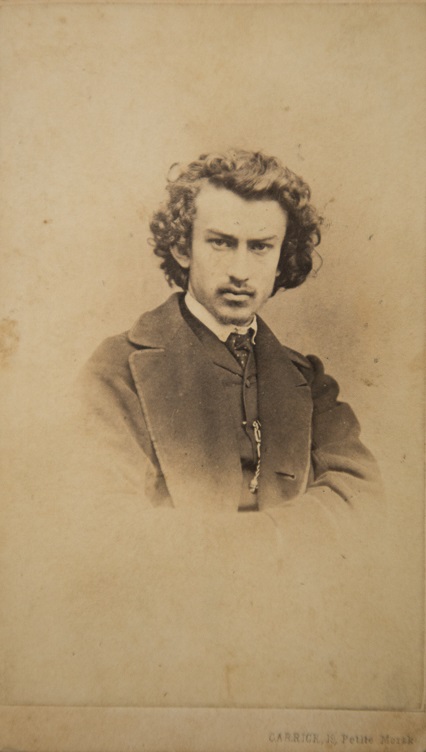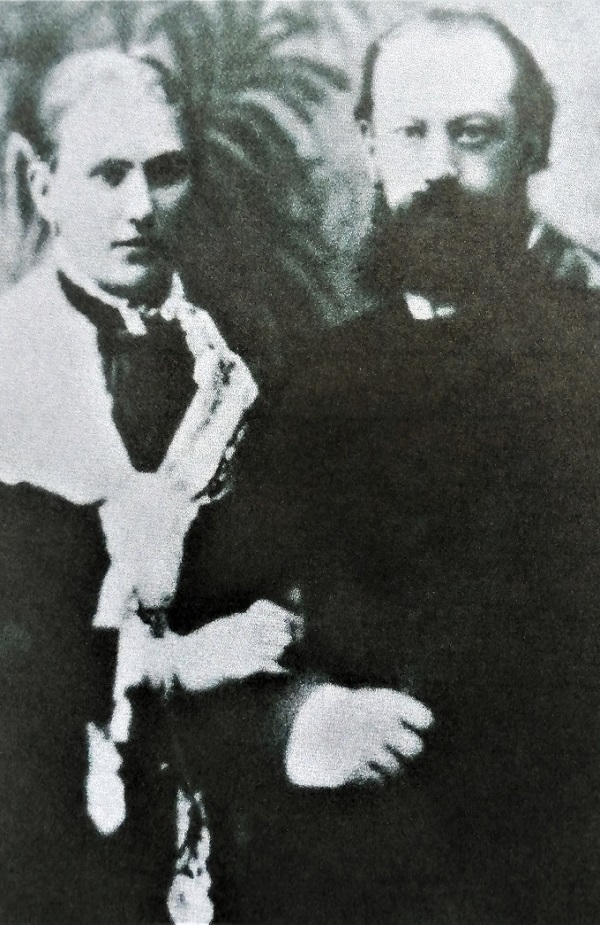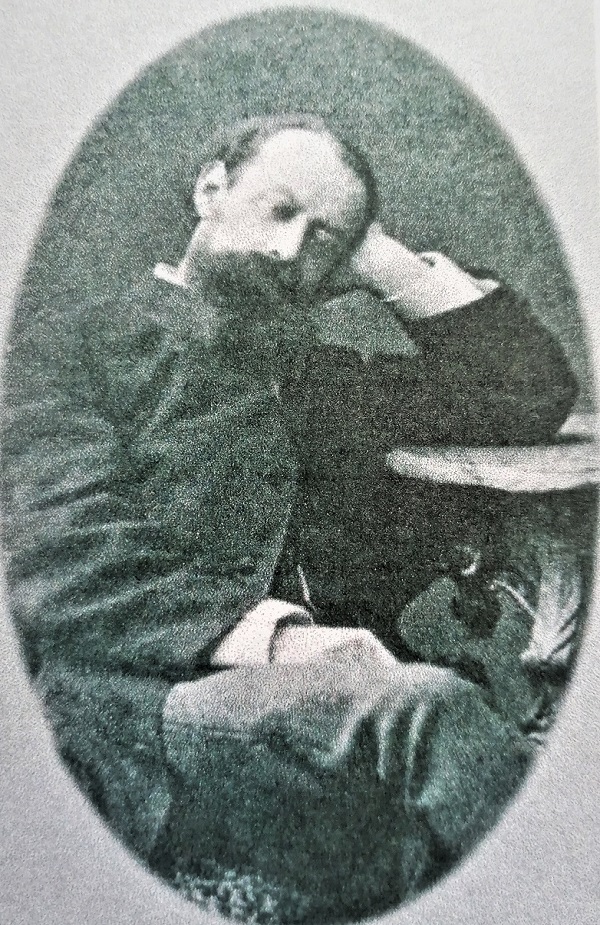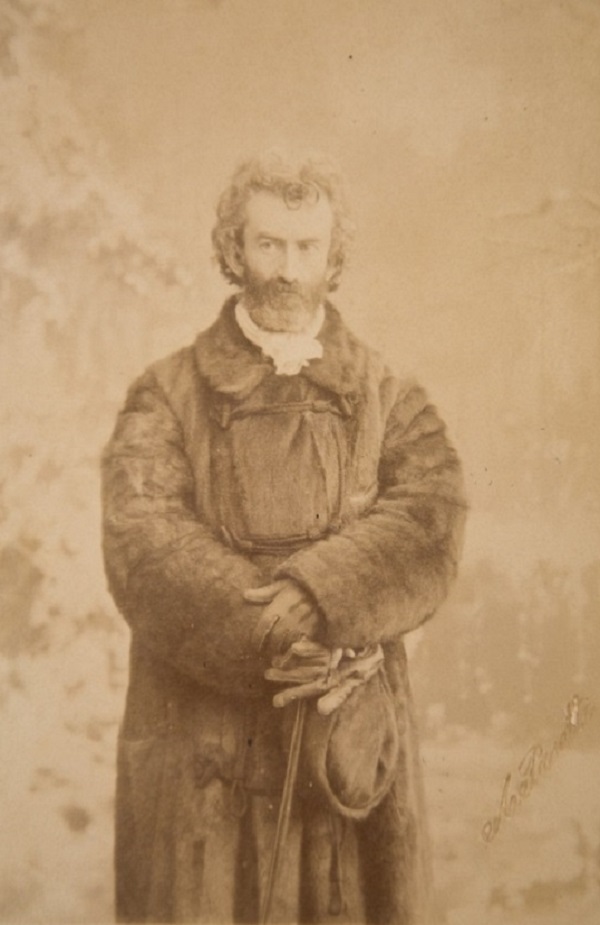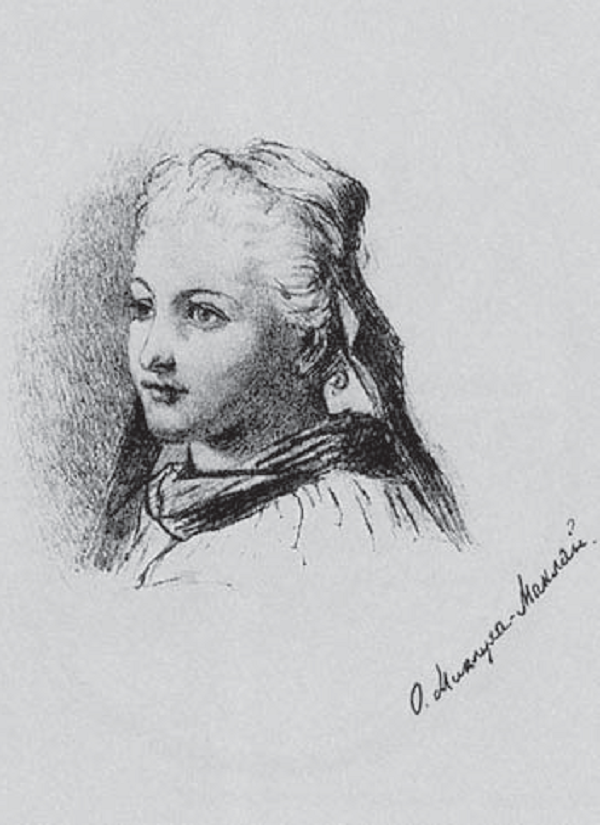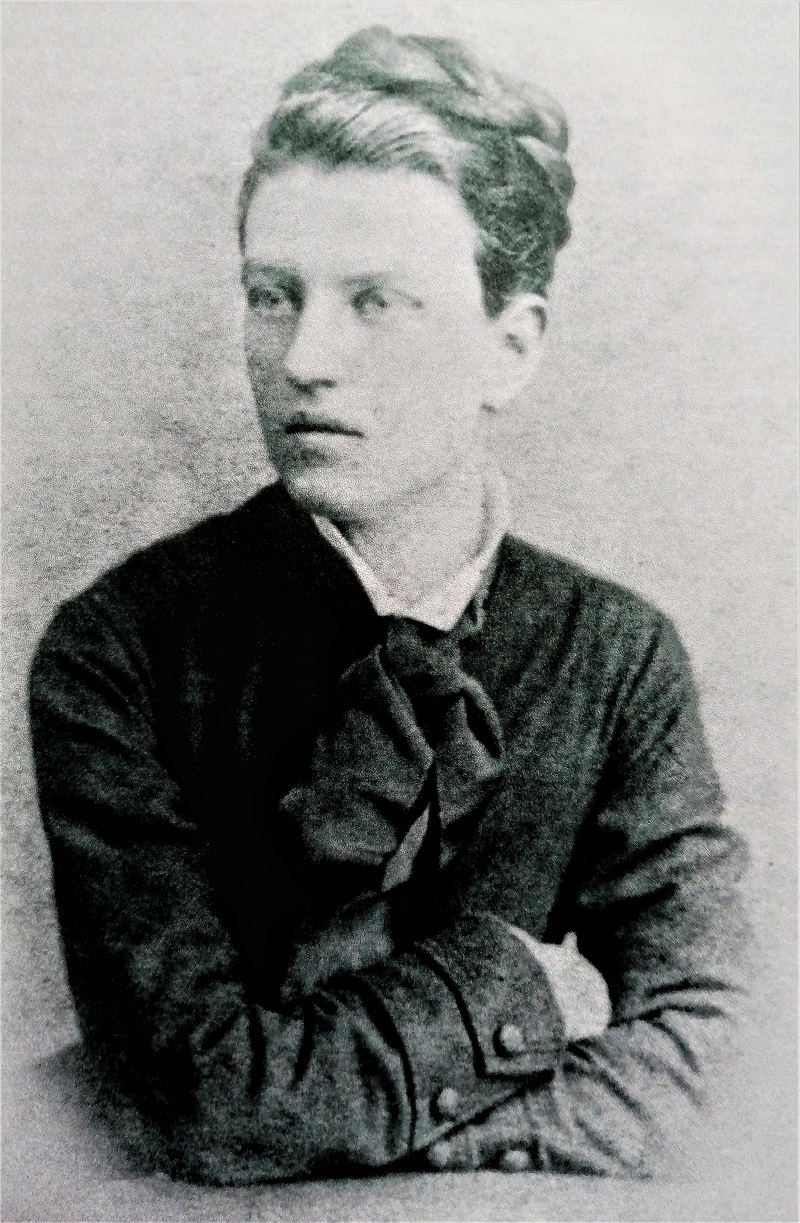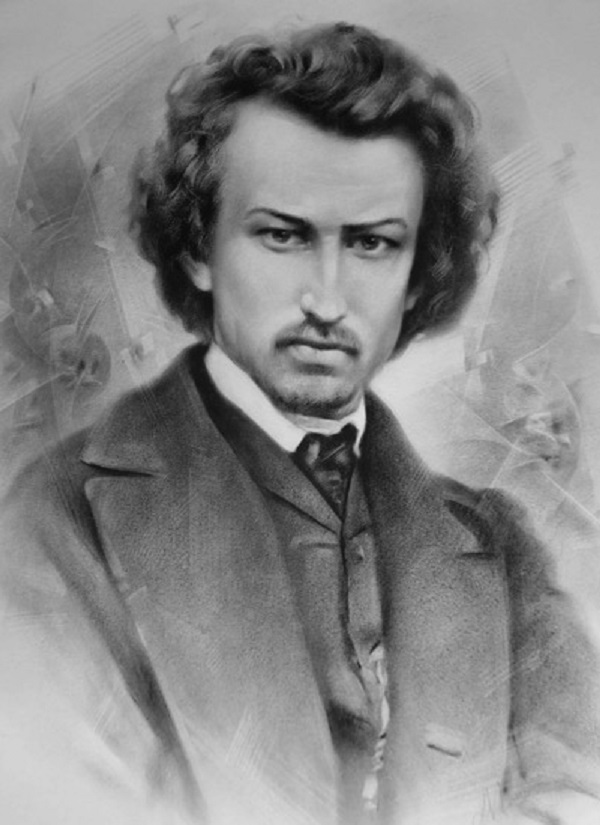
N.N. Miklouho-Maclay was born on July,17 1846 in the village of Yazykovo-Rozhdestvenskoye, Novgorod Governorate. Not far from this place, in Okulovka, there is a local museum named after N.N. Miklouho-Maclay, where the memory of their great countryman is proudly kept to this day. A stone with a memorial plaque is installed on the site of the former N.N. Evstifeev’s manor where the family rented rooms while Nikolay Ilyich Miklouha (1818-1858), the father of the future world-famous traveler, worked as an engineer at the construction of the first main railway in Russia.
Nikolay Miklouho-Maclay was the second of five children in the family of the railway engineer N.I. Miklouha. Nikolay Ilyich was distinguished by unprecedented perseverance and a sharp mind: in his youth, he walked from his native Starodub to St. Petersburg, then the capital of Russia, as Lomonosov once did to Moscow, in order to enroll in the Institute of Railway Engineers, from which he graduated with honors. Miklouha worked his way up from a civil engineer of the main railway of the country, the Saint-Petersburg-Moscow railway, to the first chief of the main railway station of the Russian Empire — the St. Petersburg railway station (now Moskovsky Railway Station). Nikolay Ilyich performed his duties well and in 1853-1855 received several highest commendations, including the medal “For Excellent and Diligent Service” for exemplary order in the transportation of troops during the Crimean War. The father of the future traveler was a man with a broad outlook and showed a keen interest not only in technical literature, but also in poetry, music, traveling, and he was also actively engaged in painting. His son Nikolay inherited much from his father, which helped him in his work. For example, his ability to draw perfectly allowed the traveler to make hundreds of illustrations during the expeditions, which became an invaluable addition to his diary records and served as a kind of message for posterity, helping immerse in the world that the scientist explored.
The story of the unusual surname Miklouho-Maclay is very interesting: the Miklouha family can be traced back to the XVII century. In 1648, during the Battle of Zhovti Vody in Ukraine, Bohdan Khmelnytsky’s Cossacks defeated the vanguard of the Polish Hetman Potocki, taking prisoner the Scottish baron Michael McLay, who served in the Polish army. The Cossacks treated the prisoner kindly — they liked his strength and easy-going personality. So, the Scot stayed in Ukraine, settled down, grew russified and married the daughter of the Cossack of the surname Miklouha who had captured him. The subsequent generations of the family are known until the 1860s under this name. Apparently, it was more euphonious and familiar to the Russian ear, while the second part of the surname was used quite rarely. And only in 1870, before the first trip to New Guinea, Nikolay Nikolaevich Miklouha submitted documents for the second part of the surname, following which the Ministry of Foreign Affairs issued him a transborder passport, which already read “Miklouho-Maclay”. Further, the whole family began to use the full surname.
N.N. Miklouho-Maclay’s mother was Ekaterina Semyonovna Miklouha (1826-1905), nee Becker, who had Polish roots and was eight years younger than her husband. Her ancestor was Johann Becker, the personal medical practitioner of the last King of Poland Stanislaw August Poniatowski.
The life of Ekaterina Semyonovna undfolded in such a way that after Nikolay Ilyich’s death at the age of 40, the burden of caring for her children Sergey, Nikolay, Olga, Vladimir and Mikhail fell on her shoulders. At first, the family used to get income from the shares of a steamship company, but by the end of the 1850s, payments on shares began to decrease steadily. Her late husband’s friends found the widow a job – to draw geographical maps and local plans at home. The whole family assisted her in this job including , of course, Nikolay, who later found this experience very useful. However, the family had to move to a cheaper apartment, sell some of the furniture and cut costs. Ekaterina Semyonovna and her children settled in the Glazunov house on Bolshaya Meshchanskaya (later Kazanskaya) Street, near Nevsky Prospekt. She had to give up the children’s homeschooling, so Nikolay and his elder brother Sergey were enrolled at the state expense in the Second Gymnasium, which was located not far from their house.
Sergey Miklouho-Maclay (1845-1895), the the world-famous scientist’s elder brother, graduated from the St. Petersburg State University Faculty of Law and later became a justice of the peace in Malin, Kiev Governorate, where together with his mother he founded the ancestral home – the Miklouha manor. Nikolay and Sergey’s adolescence and youth coincided with a crucial period in the history of Russia, associated with the abolition of serfdom in 1861.The country was in fever — peasant uprisings and student unrest broke out in the country. The Miklouha brothers took part in one of the student marches. For Sergey and Nikolay it resulted in their imprisonment in the Peter and Paul Fortress, although they only spent only a few days: after the trial, the young men were released, but the brothers remembered this experience for a long time.
Olga Miklouho-Maclay (1849-1880) became a talented porcelain artist and was a real support for her brother until her death. She was one of the first to support his idea of using the full surname Miklouho-Maclay, and was in constant correspondence with him during all his travels. Unfortunately, Olga died in childbirth at a young age on 31 January 1880, her son was named Mikhail. He was brought up in his grandmother’s house in Malin and had the surname Miklouho-Maclay. Later Mikhail graduated from the Kyiv University, where he then worked as a professor.
N.N. Miklouho-Maclay’s younger brother, Vladimir (1853-1905), was an officer of the Black Sea Fleet. During the Russo-Turkish War (1877-1878), he served on the cruiser and earned a reputation as a brave sailor. His future fate was connected with the merchant fleet. As a captain of a steamer on the Odessa-Vladivostok route, he learnt the Pacific Ocean well, which allowed him to confidently navigate in those waters during the war with Japan. In 1882, Vladimir returned to military service and in the autumn of 1902, became the captain of the coastal defense battleship Admiral Ushakov, on which in 1905 he took part in his last battle — the Battle of Tsushima. It happened the following way: at the end of the first day of the battle, the damaged battleship, lagging behind the other ships, quietly headed for Vladivostok, but was spotted by two Japanese cruisers. Rear Admiral Shimamura demanded that the battleship surrender, but Vladimir Miklouha preferred to engage in battle. With the words “We will not discredit the name of Admiral Ushakov!” he turned the ship around and took an unequal battle. The gunners of the battleship inflicted significant damage on the Japanese cruiser “Iwate”, but the forces were too unequal, and the battleship, constantly fired at by the Japanese, tilted and began to sink. The captain of the ship ordered all the surviving sailors to jump overboard and sink the ship. The captain himself refused to take a seat in the Japanese boat that came up, giving it to a sailor who was sinking next to him. So, on the evening of 15 May 1905 (May 28, N.S.), Captain 1st rank Vladimir Miklouha of Miklouho-Maclay family died along with his ship and his comrades. He was a true officer, a sailor, who today is the pride and glory of the Russian Navy. According to the memoirs of contemporaries, Vladimir had strong beliefs, was quick-tempered by nature and did not tolerate any injustice. Throughout his life, he constantly supported his learned brother.
Mikhail (1856-1927), the youngest member of the family, took up mining. Mikhail’s choice of life path is inextricably linked to his brother Nikolay and the unique circumstances of his expeditions. On the way to the cherished island of New Guinea in 1871, the corvette “Vityaz” with Nikolay Nikolaevich on board anchored in Chile, where the Russian explorer met with prominent scientists and statesmen, including Ignacio (Ignacy) Domeyko, a descendant of a Belarusian noble family, who, at the invitation of the government of Chile, had come to this distant South American country to develop mining. Domeyko made expeditions around the country, studied its geological structure, discovered new deposits of precious metals, and later became the rector of the Metropolitan University in Santiago and founded an ethnographic museum. Ignacio Domeyko received N.N. Miklouho-Maclay with great cordiality; his fascinating stories about geological surveys in the mountains and deserts of Chile and the inspection of his rich mineralogical collection made a great impression on the traveler. In a letter to his mother written shortly after leaving Chile, Nikolay Nikolaevich persistently advised his younger brother Misha (then a gymnasium student) to seriously study geology and mineralogy. Mikhail heeded his advice and later, after graduating from the Mining Institute, chose the profession of a geologist. Mikhail began to conduct geological research in the southwestern and northwestern parts of Russia on behalf of the Mineralogical Society, and the results of these studies were used in the preparation of the first geological map of the European part of Russia. Like his sister Olga, Mikhail also began to use his full surname Miklouho-Maclay after the Nikolay Nikolaevich’s departure to New Guinea in 1870. Almost three decades later, Mikhail became not only a well-known geologist, but also a collector of expedition evidence and archives of his elder brother. According to Mikhail’s memoirs, N.N. Miklouho-Maclay “was outstandingly productive <…>. He would get up in the early morning, at 6 a.m. Until lunch at 3 p.m. he was busy in his study writing notes, and his voluntary secretaries — his brothers’ wives — barely managed to copy his manuscripts <…>. In the evenings, the whole family would gather in his room after evening tea and listen to his lively, vivid travel stories”.
Mikhail left very valuable memories of his mother Ekaterina Semyonovna and of the upbringing she gave to her children: “Having been widowed early, the difficult task of upbringing fell on her shoulders at that critical moment when all values were overestimated, and therefore it was necessary to have great moral strength in order to maintain her influence on the children. <…> A distinctive feature in her way of upbringing was that she gave complete freedom to her children, so that no oppression was felt, as a result of which we all formed integral characters. There was no hurrah patriotism in our family, we were brought up in respect for all nationalities, in respect for the individual.” Thus, all five children of the railway engineer Nikolay Ilyich Miklouha and his wife Ekaterina Semyonovna formed a community of outstanding personalities, selflessly devoted to the Motherland, and N.N. Miklouho-Maclay, the world-famous explorer of New Guinea and other areas of Oceania, became the most prominent representative, who glorified the name.
Nikolay Nikolaevich also left behind spiritual commandments for the next generations — the commandments that guided him in his life.
- Remember that every night we become one day poorer.
- Your rights end where the rights of another begin.
- Do not do to others what you wouldn’t want them to do to you.
- Do not promise — once you have promised, do everything to fulfil your promise.
- Never repent what you have done, but do not repeat it if you realise that you did wrong.
- Do not start doing anything that you are not sure you will be able to finish.
- Once you start doing something, try to finish it in the best possible way — do not try to change it several times. And next time, do not repeat your mistakes.
- If you do not do it when you can, you will not be able to do it when you want.
- People should be valued by the goals they set for themselves.
- Everything that a person aspires to is infinite.
- “Tendo una palabra” — “I keep my word”. This was the family motto of hereditary noblemen Miklouho-Maclays (every hereditary nobleman in Russia had to have a patrimonial motto).
